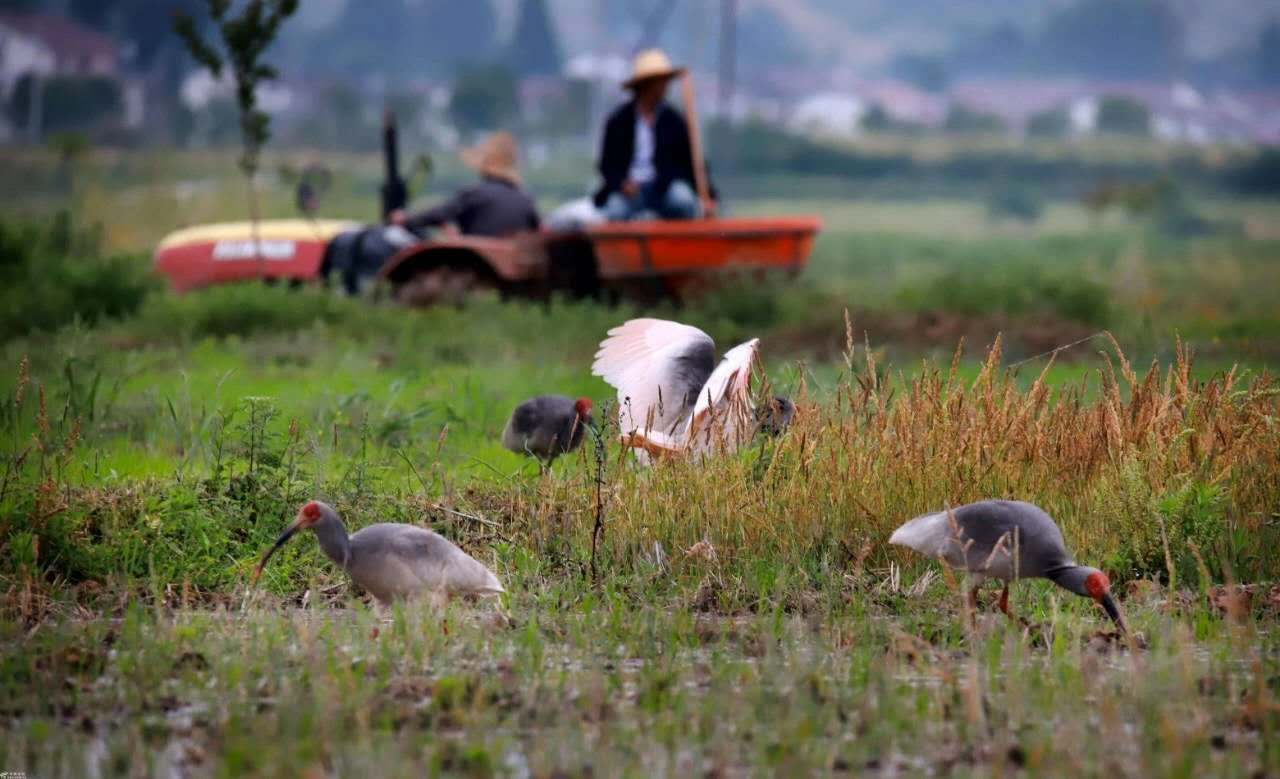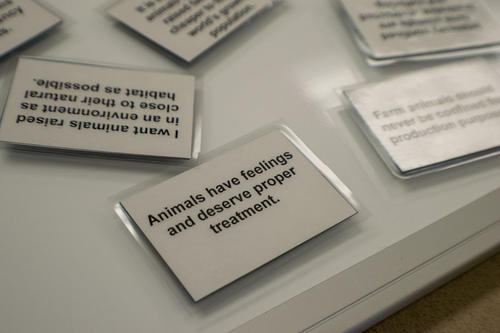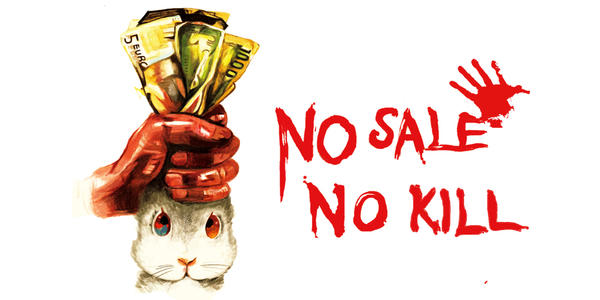Should animal welfare be our important social responsibility?
2020-03-27GoldenBeeGoldenBee0
In response to the call of the state, we stay at home to fight the pandemic. Every day, we pay most attention to WeChat, Microblog and news. Watching the rising number of confirmed cases and deaths, we sometimes fall into panic and worry. But this also urges us to analyze, judge and consider the pandemic from different perspectives.”

Animal welfare has been included in the Guidance on Social Responsibility (ISO 26000:2010)
These days, I recalled a story more than ten years ago. From 2005 to 2010, when participating in the development of the Guidance on Social Responsibility (ISO 26000:2010), some international animal protection organizations always repeatedly put forward a request to include respect for animal welfare in the definition of social responsibility standards.
The specific proposal is to add the words "and animal welfare" after the definition of “contributes to sustainable development, including health and the welfare of society” in the Guidance on Social Responsibility (ISO 26000:2010). We know that this is the fundamental goal of fulfilling social responsibility in the definition of social responsibility. All organizations who fulfill social responsibility is to promote human health and social welfare and promote sustainable development.
Do we have to add animal welfare to our social responsibilities? At that time, it was not accepted by most experts. When we further understand the meaning of animal welfare, it is even less recognized by some experts.
So what is the responsibility to animal welfare? It is to respect the welfare of animals in five aspects:
1. Physiological welfare: to guarantee the provision of food and drinking water for the good health and energy of animals, that is, to avoid hunger and thirst;
2. Environmental welfare: to make animals have proper shelter, so that they can get comfortable sleep and rest;
3. Health welfare: mainly to reduce animal injuries, prevent diseases, and timely treatment of sick animals;
4. Behavioral welfare: to provide enough space, proper facilities and be with the same kind of partners to ensure the freedom of expression of their nature;
5. Psychological welfare: to ensure that animals can avoid suffering from various conditions and treatment of mental pain, that is, to reduce animal fear and anxiety.
At that time, experts pointed out that there are more than 800 million people living in absolute poverty in the world, and their food and clothing problems have not been solved. Are we qualified or able to do this to animals? Should we first consider solving the problem of human poverty and hunger as well as human welfare, and then consider the responsibility to animals?

Responsibility for animals should be included in the agenda of social responsibility
From the perspective of the source of the virus judged by professional organizations, the outbreak of COVID-19 came from the wild animals sold in a seafood market in Wuhan. Like the SARS pandemic in 2003, the outbreak started from a small number of people 's gluttony on wild animals. It is this irresponsible behavior that people do not respect nature, do not respect living beings, and indiscriminately hunt, kill and eat animals, that brought about a catastrophe to mankind.
Thousands of people are paying for the irresponsible operation and consumption of a small number of people, even paying the cost of their lives. To protect the creatures of nature is not only to protect them, but also to protect ourselves and our future. Memories of the above event, and the outbreak of COVID-19 in Wuhan, there are several points worth further reflection.
First, the whole society should strengthen the cognition of animal social responsibility. To respect animal rights and improve animal welfare is an important social responsibility. It is a social responsibility of all organizations to consider and respect the animals welfare, including wildlife welfare. In other words, an organization, including an enterprise, should also consider and evaluate its positive and negative impacts on animals in the process of making and implementing a decision, and take management measures to maximize the positive impact on animal welfare and reduce the negative impact.
At the same time, it is necessary to assess the impact and take corresponding improvement measures. For example, the 3R principle, which has been implemented in the scientific experimental animal industry for a long time, is reduction, replacement and refinement of experimental animals. Specifically, we should try our best to reduce the number of living animals in the experiment, replace living animals with vitro methods or non-sensory biological materials, create a good experimental environment for animals or reduce the pain and discomfort caused to animals, and improve animal welfare.
Second, strengthen the dissemination of knowledge about animal responsibility and promote the animal welfare management of relevant productive enterprises. At present, the focus on animal welfare is mainly reflected in farm animals and some protected wild animals. Farm animal welfare runs through the whole value chain of animal husbandry from production to consumption. From the early stages of genetic selection and breeding, we should consider animal welfare. Good animal welfare includes not only the prevention and control of animal pandemic, but also animal shelter, management, nutrition and human slaughter.
Our country has also made great progress in this regard. Under the China Association for the Promotion of International Agriculture Cooperation, an international cooperation committee on animal welfare was established to promote animal welfare, and a series of standards of Farm Animal Welfare Requirements were formulated and issued by China Association Standardization. At present, the welfare standards for pigs, beef, sheep, laying hens and broiler have been issued, which are applicable to the whole process of animal welfare management in the whole process of breeding, transportation, slaughtering and processing of the above-mentioned animals in the farm.
Third, we should promote responsible consumption and sustainable lifestyle. Animal welfare is closely related to the achievement of one of SDGs (Goal 12 responsible consumption and production). The realization of animal welfare is not only reflected in the production side, the awareness and action of the consumer side are also indispensable driving forces to support animal welfare.

A socially responsible consumer will avoid buying products that are harmful to society, and actively buy those that are beneficial to society. When there are more and more responsible consumers in a society, it is not only better to protect the rights and interests of consumers themselves, but also to promote the CSR fulfillment through responsible purchasing behavior, which also is every citizen's due responsibility.
If more and more consumers buy animal products with high animal welfare, it will promote the production and operation of responsible enterprises. In particular, they do not buy wild animals that do not meet the requirements of animal welfare and regulations, such as paguma larvata and bats. Bats are said to be the source of the COVID-19 in Wuhan, while paguma larvata are likely to be intermediate hosts. If our consumers understand the responsibility of animals, they will know paguma larvata is a national second-class protected animal which cannot be purchased, and bats also have no special nutritional value. Moreover, bats have some bionic value to be explored. They are also agricultural beneficial insects, and have pollination like bees. If our consumers don't buy these animal products, they will not only comply with laws and regulations, but also protect the beneficial animals in agriculture, let alone cause such a big pandemic. This is not only a kind of responsible consumption, but also a sustainable lifestyle.
Should we include animal welfare in the definition of social responsibility?
Can animal welfare be included in the definition of social responsibility? In retrospect, the responsibility of animal welfare in the environmental protection, biodiversity and natural habitat restoration under the environmental theme does not attract enough attention. In the next revision of ISO 26000 Guidance on Social Responsibility, whether animal welfare should be included in the definition involves a deeper level of consciousness. There are several issues that need to be explored in depth.
First, can animal welfare be a part of sustainable development? Sustainable development can include animal welfare because biodiversity is related to the sustainable development of human beings. From the perspective of biological gene, species and ecosystem, the animal gene, species and the function of animals in the ecosystem are indispensable contents of biodiversity. To maintain the function of animal gene, species and animals in the ecosystem, it is necessary to pay attention to animal welfare. Therefore, in the definition of social responsibility, inclusion of animal welfare is acceptable, so that the responsibility of animal welfare can be better understood and fulfilled.
Second, can animal welfare be the goal of fulfilling social responsibility? From the perspective of the interest relationship between man and nature, the principle of human affairs is based on whether it is beneficial to human beings. But from the point of view of human and natural interests, we can't deal with it absolutely. The author is in favor of such a principle of dealing with the interests of man and nature, that is, generally speaking, when the above two conflicts of interests are involved, the basic needs of human survival are higher than the interests of biology and nature, but the survival of biology and nature is higher than the non- basic needs of human beings (that is, the needs of excessive enjoyment and being extravagant).
Specifically, we should restrict human activities to the limits of ecological permission, implement the principle of respecting life and nature, maintaining the integrity of ecosystem, constantly improving and developing life to upgrade the ability of ecosystem to maintain life. In this way, it can not only promote the interests of human beings, but also increase the interests of biology and nature. Therefore, animal welfare can be the goal of fulfilling social responsibility.
Third, can respect for animal welfare allow people and animals to live in harmony? Human being is the product of the long-term evolution and development of the earth's ecosystem, which is called the son of nature. We should respect, comply with and protect the mother nature. The son of nature is also the master of nature, but we can't destroy nature, let alone acting arbitrarily. In history and reality, many people think that human beings are the masters of all things, and they are free to do whatever they want. As a result, nature's merciless retaliation is aroused. Engels warned us more than a hundred years ago: “We should not be over enjoyed our victory on the nature. For each such victory, the nature will take revenge on us.”

SARS pandemic in Beijing in 2003 and the COVID-19 in Wuhan this year are all very real examples. The ecological progress is the active guidance of contemporary China to the development trend of human civilization. The ecological progress reflects the progress of human beings in dealing with their own activities and the relationship between nature. It is a great leap of human understanding and a great change of values.
The key to this transformation lies in solving the contradiction between natural and social material production. It is necessary to turn the value orientation of human-centered social material production to the value orientation of harmonious coexistence between man and nature, and then promote the coordinated development of man and man, man and society. We should emphasize that human and nature should get along equally, including the harmonious coexistence between human and animals.
Source: Yin Gefei, Should animal welfare be our important social responsibility?, China Sustainability Tribune, 2020, 1- 2.
Note: All images are from the Internet.
Best Practices
- The 100-year brand — Air Liquide also has a sense of juvenile
- Beijing Public Transportation Corporation: Developing green transportation to build a harmonious and livable capital
- CGN: Building a modern factory in barren deserts and developing a new win-win cooperation model along “Belt and Road”
Upcoming Event

All the materials on the site “Source: XXX (not from this site)” have been reprinted from other media. They do not imply the agreement by the site.
All the materials with “Source: CSR-China Website” are the copyright of CSR-China Website. None of them may be used in any form or by any means without permission from CSR-China Website.
GoldenBee Official WeChat
Copyright © Csr-china.net All Right Reserved.
京ICP备19010813号










